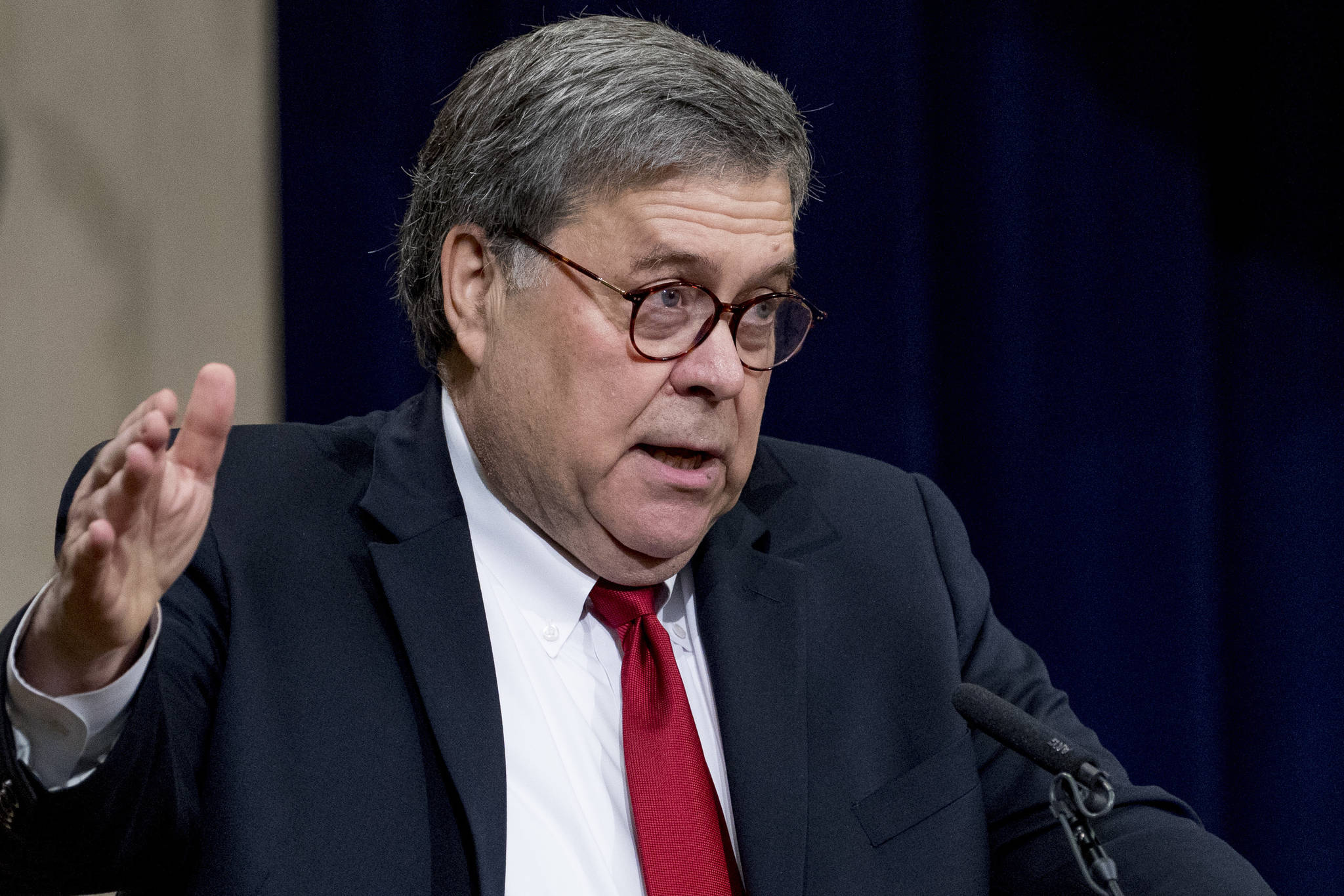WASHINGTON — Attorney General William Barr declared a law enforcement emergency in Alaska on Friday, clearing the way for the Justice Department to award more than $10 million to combat crime in rural communities.
The announcement comes a month after Barr visited the state and met with Alaska Natives, who described disproportionately high rates of violence and sexual assault in Native communities and other problems, including not having any law enforcement presence in some villages.
It is the first time that Barr has personally declared a law enforcement emergency since he assumed the top post at the Justice Department in February. The department has previously declared similar emergencies after mass shootings and to combat spikes in violent crime.
The funding is meant to hire additional village and tribal officers and to pay for equipment and training. Additional money is also being awarded for federal prosecutors to target violent crime in rural Alaska and for tribes to pay for victims’ advocacy services.
Federal officials face unique challenges in Alaska because most of the crime plaguing the state would be prosecuted by local officials instead of the federal government, Bryan Schroder, the U.S. attorney in Alaska said. But the federal government hopes the funding can help retain law enforcement officers in some rural communities, where it can take a long time before state troopers can arrive to investigate crimes, and to build and strengthen tribal courts. Often, it can take troopers hours to reach a village given the sheer vastness of the nation’s largest state, with few roads. That can stretch into days if the weather is bad.
State authorities handle criminal investigations in more than 200 Alaska Native villages. A 2013 federal report found that at least 75 Alaska Native communities had no law enforcement presence. Tribal leaders have spoken candidly about barriers that victims face in seeking justice, saying some sexual assault victims must take boats or planes to urban areas to get a medical forensic exam.
The move drew praise from the Alaska Federation of Natives, which applauded the Justice Department for demonstrating a commitment to strengthening federal, state and tribal partnerships.
“We appreciate that U.S. Attorney General William Barr clearly understands the urgency of the public safety situation in rural Alaska,” the organization’s president, Julie Kitka, said in a statement.
U.S. Rep. Don Young, an Alaska Republican who lives in the tiny community of Fort Yukon, above the Arctic Circle, said he was glad Barr released the money.
“I’m cautioning people, though, because money just doesn’t solve the problem,” the 86-year-old Young said Friday afternoon while filing paperwork in Anchorage to seek a 25th term in the House. “There should be recognition that this problem can only be solved by support by the communities themselves.”
While the money will help, Young said, “You can’t expect it to be done just by outside influences.”
In May, Barr toured rural Alaska communities after taking part in a round-table discussion in Anchorage with Alaska Native leaders. Vivian Korthius, with the Association of Village Council Presidents, told Barr there were only six village public safety officers in her 48-village region.
Barr said his declaration allows the Justice Department to direct resources “where they are needed most and needed immediately.”
The attorney general also directed all Justice Department agencies, including the FBI and the Bureau of Alcohol, Tobacco, Firearms and Explosives, to submit plans within 30 days about what their agencies can do to help public safety efforts in rural Alaska.
“Lives depend on it, and we are committed to seeing a change in this unacceptable, daily reality for Alaska Native people,” Barr said.
• By MICHAEL BALSAMO, Associated Press

